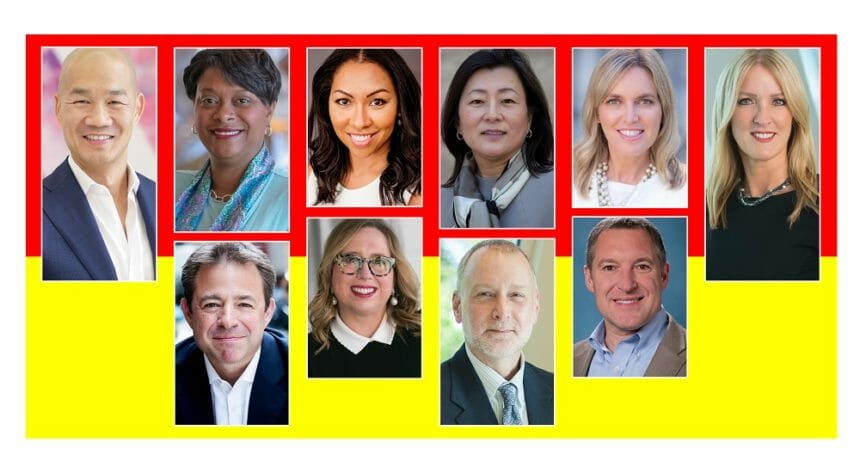There’s no such thing as a “typical” career path in pharma and healthcare. Ten executives share their inspirations, “eureka” moments, professional challenges, and lessons they learned along the way.
Wei-Li Shao
VP, neurosciences business unit
Eli Lilly
Time in the industry: 24 years
What was your most important or favorite job before your current one? Any of the GM positions I’ve had in various countries. The privilege to lead multiculturally is incredible and humbling.
What’s one thing about pharma and healthcare you’d change if given the chance? I’d accelerate the advent of digital healthcare — everything from the widespread adoption of telemedicine to the use of social media in real-world evidence. Digital has the potential to create far better outcomes and care experiences for patients.
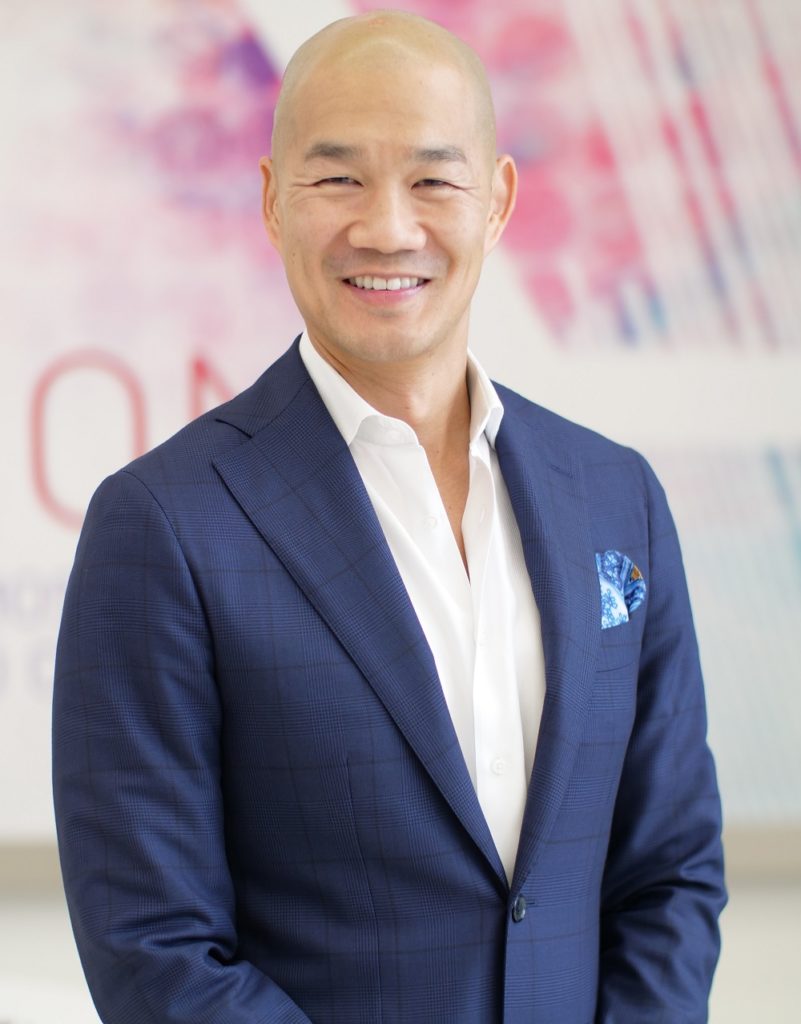
What were the most important, funny, or weird things you have learned over the course of your career? The most important thing I’ve learned is culture is the most powerful lever a leader can pull to create a high-performing team. It’s odd that so many leaders let culture develop without direction and by chance.
Who were your inspirations and mentors, both professionally and personally? I am inspired by anyone, famous or not, who finds their vocation. Vocation is the thing you’re meant to do that matters and it requires sacrifice. Some of these people include Mother Teresa, Martin Luther King Jr., Nelson Mandela, and Elon Musk. I am inspired by people with purpose.
Looking back, are there any career moves or decisions you’ve made for which you’d like a mulligan, so to speak? When I was in college, I spent so much time thinking I wanted to be a doctor. If I had to do it over again, I would’ve said, “You’re meant to do other things.”
What would you do if you didn’t do what you do for a living? I’d be an author and novelist.
What is something your peers don’t know about you? I published a children’s book on Amazon this year called Anny The Tall Girl. It’s a book for children aged 4 to 6 and has a message about diversity and inclusion. All proceeds go to the United Way of Central Indiana for early childhood development and education.
What’s something unique you keep on or around your workspace? At my home office, I am surrounded by books, artwork, and items I’ve collected during my overseas assignments. They inspire me and remind me of who I am.
What is your favorite city to visit for work, and why? When I need reminding of how fast the world is changing, I relive my time in Shanghai. When I need reminding of the importance of work-life balance, I remember New Zealand.
Allyson McMillan
Worldwide commercial lead in immunoscience,
Bristol-Myers Squibb
Time in the industry: more than 20 years
What was your original career goal? As a child, I wanted to be a paleontologist. Then in high school, I met several dynamic business leaders and decided to pursue a career in corporate America.
What was it about a career in healthcare and pharma that appealed to you? I started my career in pharmaceutical sales in rural South Carolina, and it was so powerful to see the role healthcare providers play in the community. It was in that role I concretized my commitment to healthcare as a profession and to focusing on the patient experience.
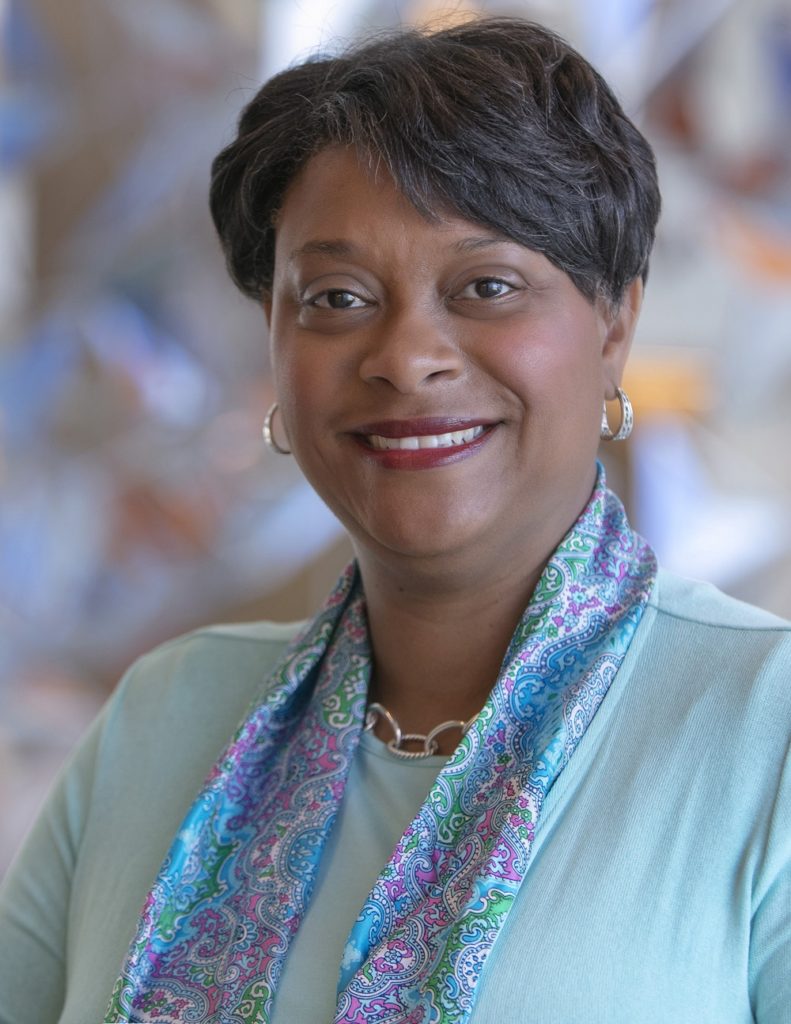
What was your “eureka” moment, when you realized you were in the right place professionally? When I received my first voicemail from a physician thanking me for the support the company gave him and his patients. He thought it was rare for a company to work so hard to help his underserved community.
What were your greatest professional challenges along the way and how did you get past them? The toughest decision was to slow my career advancement to meet the demands of a new and growing family.
Bristol-Myers Squibb is a wonderful organization that was fully committed to my professional and personal development. The support I received and the continued professional development reassured me I not only made the right decision, but was also working for the right company.
What was your most important or favorite job before your current one? My work in oncology truly shaped me. I appreciate being part of bringing forward new therapeutic options to patients and their caregivers. The work we do demonstrates the importance of R&D and the responsibility commercial leaders have in creating strong brands.
What do people not “get” about working in pharma and healthcare? What are some of the misperceptions? That government or academic institutions are the only organizations in which important new drugs are discovered.
In fact, drug development at its core is a collaborative process across these groups and private industry. Many of our innovations at BMS come from within.
What’s one thing about pharma and healthcare you’d change if given the chance? I would like to have the opportunity, in some way, to thank the patients who participate in clinical trials. The service they provide for the broader population often goes unrecognized.
What were the most important, funny, or weird things you have learned over the course of your career? I often laugh at — and I am still struck by — how applicable many of the simple proverbs and aphorisms we learn early in life are to everyday business challenges. One of them, “There is no I in team,” has helped me build and be a part of innovative and successful teams. Many of these simple truths, when embodied and applied by leaders, can be culturally enhancing game changers.
Who were your inspirations and mentors, both professionally and personally? My greatest inspiration comes from my amazing father. He has been a teacher and a senior executive in the federal government, and is currently an entrepreneur. Through his modeling and leadership, I learned to have a strong work ethic, embrace failures as opportunities to learn, be passionate about one’s convictions, and give voice to what is right even when others are silent.
What is your biggest professional strength and how did you develop it? It’s rooted in my ability to lead high-performing teams. It is my experience that strong leaders are servants to the teams they are leading. Some of the best leaders I have worked for modeled the principles of servant leadership I embrace every day.
What advice would you give to others looking to get into the industry or move up the ranks? The best way to get into the industry is through sales. It allows future pharma executives to understand their customers and the tools used to communicate in a deep way.
I often lean on my learnings from working in primary and specialty sales, as I see the sales organization as a key stakeholder of the commercial function.
Leverne Marsh
VP and U.S. head of respiratory franchise
Novartis
Time in the industry: 18 years
What was your original career goal, whether as a kid or right out of school? As a kid, I greatly admired the heroes in my family and community. I have always loved solving problems in the service of others.
What was your most important or favorite job before your current one? I learned so much by interning right after school. I still enjoy the widely different tasks assigned to me which, fortunately or not, resulted in my wide-ranging professional interests as my career progressed. My interning experiences were the start of an enduring professional curiosity.
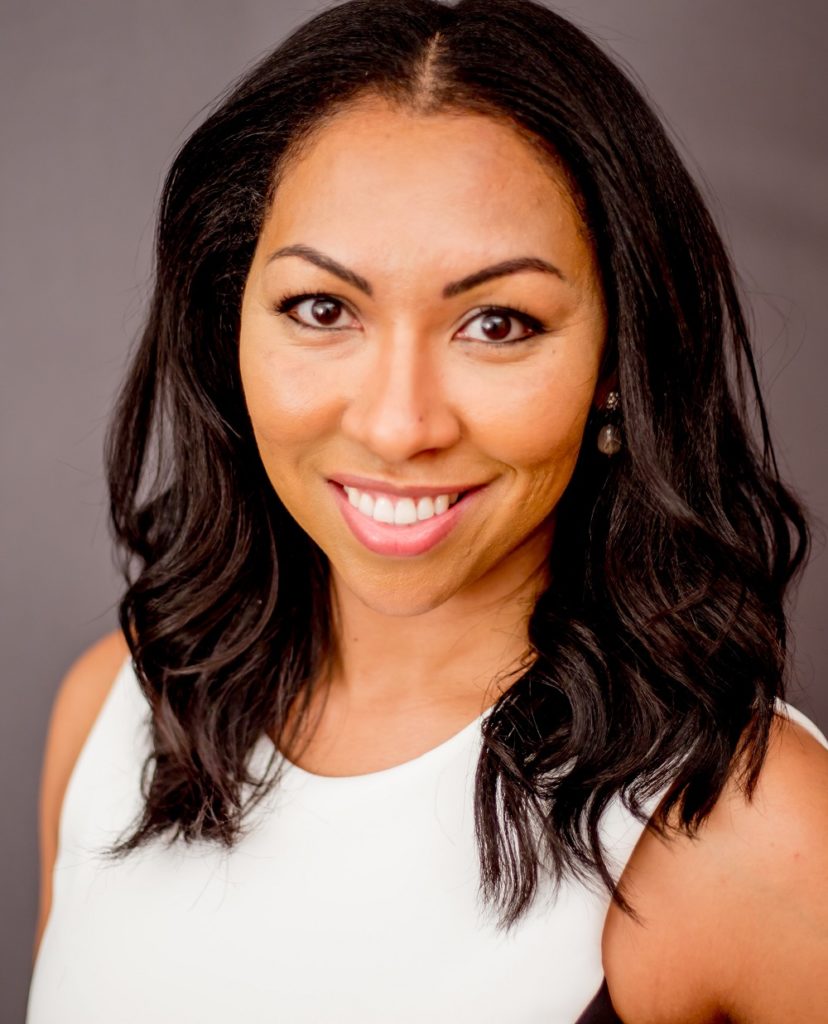
What was it about a career in healthcare and pharma that appealed to you? There is nothing better than work that can have a life-changing impact in the service of others.
What were your greatest professional challenges along the way and how did you get past them? Early in my career, I wasted time, energy, and opportunities in the pursuit of perfection. I learned striving for excellence is a much better pursuit.
Who were your inspirations and mentors, both professionally and personally? My parents inspired me with their perseverance, resilience, hope, and courage to push to do better. I was also inspired by Nelson Mandela, who was imperfect but compassionate, and a prodigious learner. Mandela changed the lives of millions of people through his courage to speak and act for justice.
What were the most important, funny, or weird things you have learned over the course of your career? Some of the most rewarding risks I have taken happened because I was delightfully naive to the consequences.
What advice would you give to others looking to get into the industry or move up the ranks? Everyone everywhere started in a role having no experience at least once in his or her career. If you have an interest or passion to grow in a new area, do not be intimidated by a lack of experience. Be curious, open-minded, and relentless about learning and growing.
June Lee, M.D.
Chief development and operating officer
MyoKardia
Time in the industry: 14 years
What was your original career goal, whether as a kid or right out of school? I thought academic medicine might be an area for me to pursue. There were many different iterations along the way — I thought about being a bench scientist, asthmatologist, and clinical researcher. As a kid, I wanted to become a doctor to figure out how to treat a disease that ran in my family.
What was it about a career in healthcare and pharma that appealed to you? Very few careers have such a direct impact on people outside of healthcare. I’d been spending a lot of time pursuing independent research in the context of an academic career and came to realize the things we were discovering in the lab were being further developed in industry.
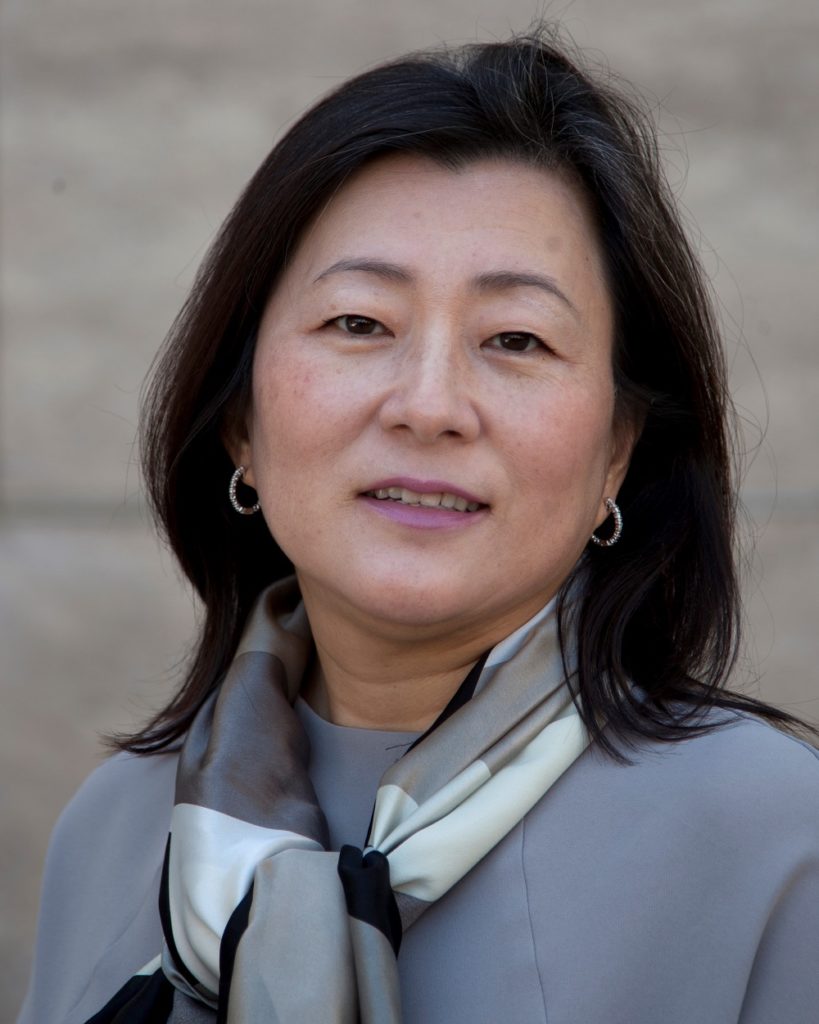
I really wanted to do translational research and much of that was happening outside of academia.
What was your most important or favorite job before your current one? My role at University of California, San Francisco as director of translational research was really fun. It allowed me to bring many different facets of my career and training together in a space that no one had yet figured out. Getting to be part of a broader creative conversation in a very multidisciplinary, multisector sort of way to connect the dots between all of the different component parts and stakeholders, creatively problem solve, and build a template other institutions began to adopt was rewarding.
What was your “eureka” moment, when you realized you were in the right place professionally? Walking into Genentech and my first two weeks there. I realized my perspective in research and the knowledge of the care of these patients was incredibly valuable in the work of developing drugs. And I was doing this with an incredible team with distinct expertise, such as regulatory and pharmacology. I was learning as much as I was giving.
What were your greatest professional challenges and how did you get past them? Part of it was work-life balance. Figuring out how to be a parent of three in a two-career family and pursue an exciting and demanding career at the same time can be challenging.
What’s one thing about pharma and healthcare you’d change if given the chance? I’d like to see more female leadership at the highest levels. We’d have better decision-making. I believe in giving women with a lot of potential equal opportunity.
What advice would you give to others looking to get into the industry or move up the ranks? For getting into industry, be clear about why you want to be here. Start networking with people who can provide counsel on what it’s like to be in industry.
Finding the best point of entry doesn’t mean you end up with your ideal job. It may mean you’re in a role that provides exposure and training to open the door to the next opportunity.
Carrie Strom
SVP of U.S. medical aesthetics
Allergan
Time in the industry: 18 years
What was your original career goal, whether as a kid or right out of school? As a kid I wanted to be the NBA’s first female referee. That’s a clear path from NBA referee to head of medical aesthetics, right?
What was your most important or favorite job before your current one? It’s a toss-up. I enjoyed serving as director of marketing for Lipitor, during which time I led the strategic planning for what was then the biggest revenue drug in pharma as it approached its loss of exclusivity. Additionally, I wouldn’t trade my time as a sales representative. There is no better career training than “carrying the bag” yourself.
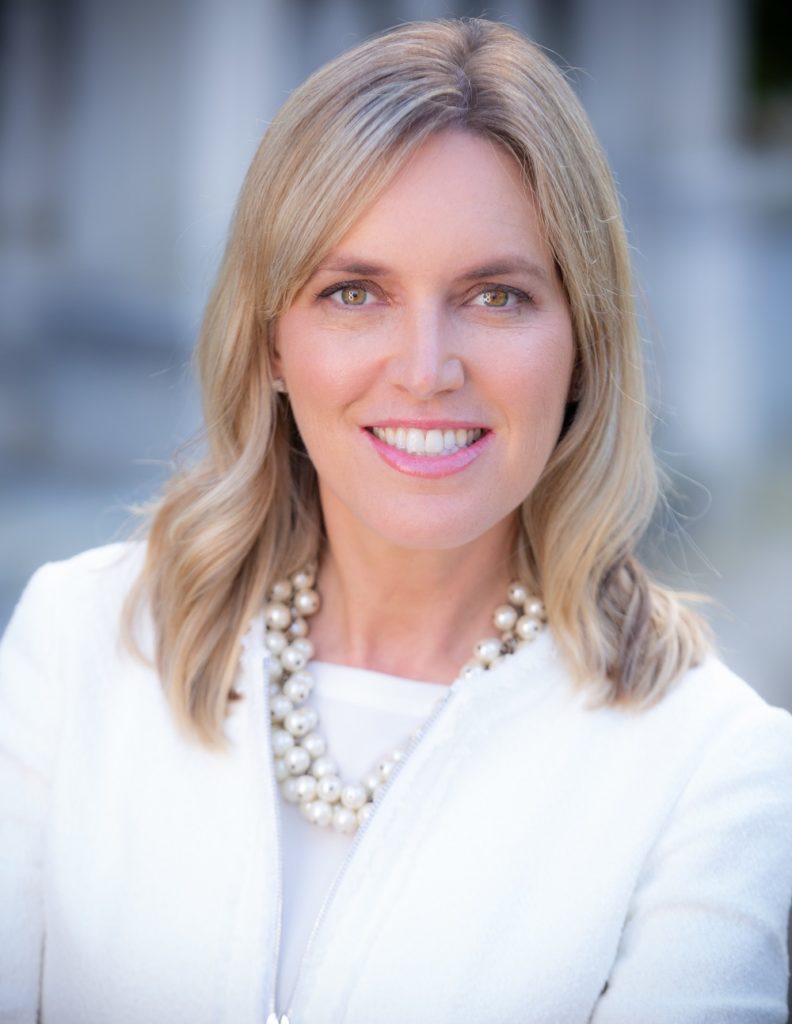
What was it about a career in healthcare and pharma that appealed to you? I saw how healthcare and medicine felt like a foreign language to my friends and family. During some of the biggest decisions of their lives, they felt confused and overwhelmed. I wanted to become an expert in as many therapeutic areas as possible to help improve health literacy so both healthcare providers and patients better understood their options.
What was your “eureka” moment, when you realized you were in the right place professionally? I loved my years as a sales rep in the field. But when I did a marketing rotation for three months at Pfizer’s New York City midtown headquarters, surrounded by subject matter experts and with the opportunity to drive brands at the national level, I knew I was a marketer for life.
What were your greatest professional challenges along the way and how did you get past them? In my 18 years in healthcare, I have worked in eight therapeutic areas. This created opportunities for me, but also challenges in terms of developing deep understanding of the markets, thought leaders, and brands. One thing that helped me manage this was going into the field and hearing directly from key customers and salespeople. Their observations helped me connect the dots much faster.
What do people not “get” about working in pharma and healthcare? What are some of the misperceptions? There is a massive underappreciation for how much information HCPs and patients have to process, and the role industry plays to bridge that gap. Our consumer comms can provide hope to patients or caregivers about treatment they didn’t know existed. Our HCP comms provide everything from medical education to hands-on training.
At one of our training sessions, an HCP told me he hadn’t had training like this since he was a resident. Knowledge is power.
What were the most important, funny, or weird things you have learned over the course of your career? In marketing, it’s tempting to apply your own viewpoint and bias. So, it’s good to remind ourselves we are not the target. I’ve never been a patient with high cholesterol or a urologist. This is why market research is important. Of course, now that I am leading Allergan’s medical aesthetics business, I am the target. It’s fun to use myself and my friends as a part of the market research.
What’s one thing about pharma and healthcare you’d change if given the chance? It’s all about the data. I would love to get more precise patient and consumer data so we can better meet their needs.
Who were your inspirations and mentors, both professionally and personally? I have a core group of friends who live similar lives as me: Our kids are the same age, both parents work and have careers in healthcare. They are my personal and professional inspiration. As one of them told me, “Behind every successful woman is a tribe of other successful women who have her back.”
What advice would you give to others looking to get into the industry or move up the ranks? Help make others successful and your success will follow. Give credit instead of taking it. Root for people instead of against them.
The best proof of a strong leader is when their direct reports become a peer or, even better, their boss one day.
Looking back, are there any career moves or decisions you’ve made for which you’d like a mulligan, so to speak? No, every career move has taught me something and introduced me to new people. I’m happy to say I wouldn’t change a thing.
Shontelle Dodson
SVP, health systems
Astellas
Time in the industry: 20 years
What was your “eureka” moment, when you realized you were in the right place professionally? Early in my career, I had the privilege of working at a Veterans Affairs Medical Center, where I was able to address patients’ needs firsthand. Not only did I help them medically, but I also saw how important it was for patients to have a health advocate.
That feeling was revalidated when my grandmother was experiencing health challenges. I suspected one of her medications was contributing to her decline and personally advocated for her repeatedly to have this addressed. After some time, we finally convinced the physician to adjust her medication.
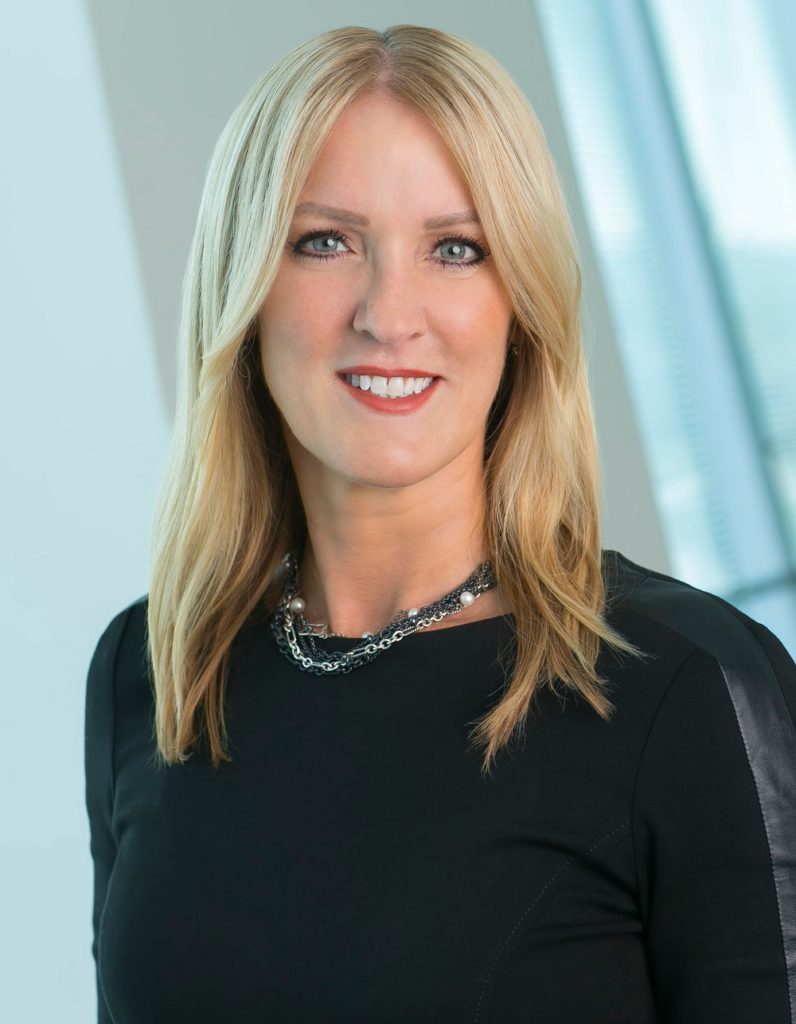
What was your original career goal, whether as a kid or right out of school? When I started college, I planned on pursuing a career in accounting. But three weeks in, I realized accounting wasn’t for me.
During sorority rush, I met a friend in pre-pharmacy studies and decided to change my field. At the time, all I knew about pharmacy was that was where you picked up your prescriptions.
The friend who inspired me to switch is still a great friend today. I love my career and consider it divine intervention.
What do people not “get” about working in pharma and healthcare? What are some of the misperceptions?
That because we are a for-profit company, we have misaligned priorities. That is not at all true. Across the industry, there is amazing work happening to bring meaningful value to patients.
Working in the medical affairs organization, I see this great work firsthand, but too often the public does not.
For example, at Astellas we invest in a broad range of research — not just research tied to our products, but also to the diseases they treat.
Looking back, are there any career moves or decisions you’ve made for which you’d like a mulligan, so to speak? Very early in my career, I had a boss who wasn’t a good fit for me. I wanted to make a change but didn’t want to leave the company, so I interviewed for a different position within the organization. It was a sales position and I had never done sales before — which was very apparent during the interview. Unsurprisingly, I didn’t get the position.
The VP who interviewed me took the time afterward to provide feedback on why I wasn’t selected: “You have to seek opportunities that drive your passion, not to move away from something else.” At that point, I took full responsibility for my own development and made a commitment for ongoing professional growth.
What is your favorite city to visit for work, and why? Tokyo and New York City, because of their vibrancy, fast pace, and innovation.
What’s something unique you keep on or around your workspace? I have a lot of pictures of people I work with — pictures from team outings, our annual medical affairs awards event, and company charity events. We’ve become a “work family.”
Mark Pirner, M.D., Ph.D.
Senior medical director, clinical research and medical affairs
U.S. WorldMeds
Time in the industry: 16 years
What was your original career goal, whether as a kid or right out of school? I caught the physiology and anatomy bug in seventh grade. Since then I have continued to be fascinated and appreciative that there is much more we don’t know than we do know. The never-ending mystery for me is reassuring.
What was your most important or favorite job before your current one? I was recruited to PepsiCo to build a pharma-level “serious” discovery and clinical development capability, including advanced analytics and a metabolomics lab.
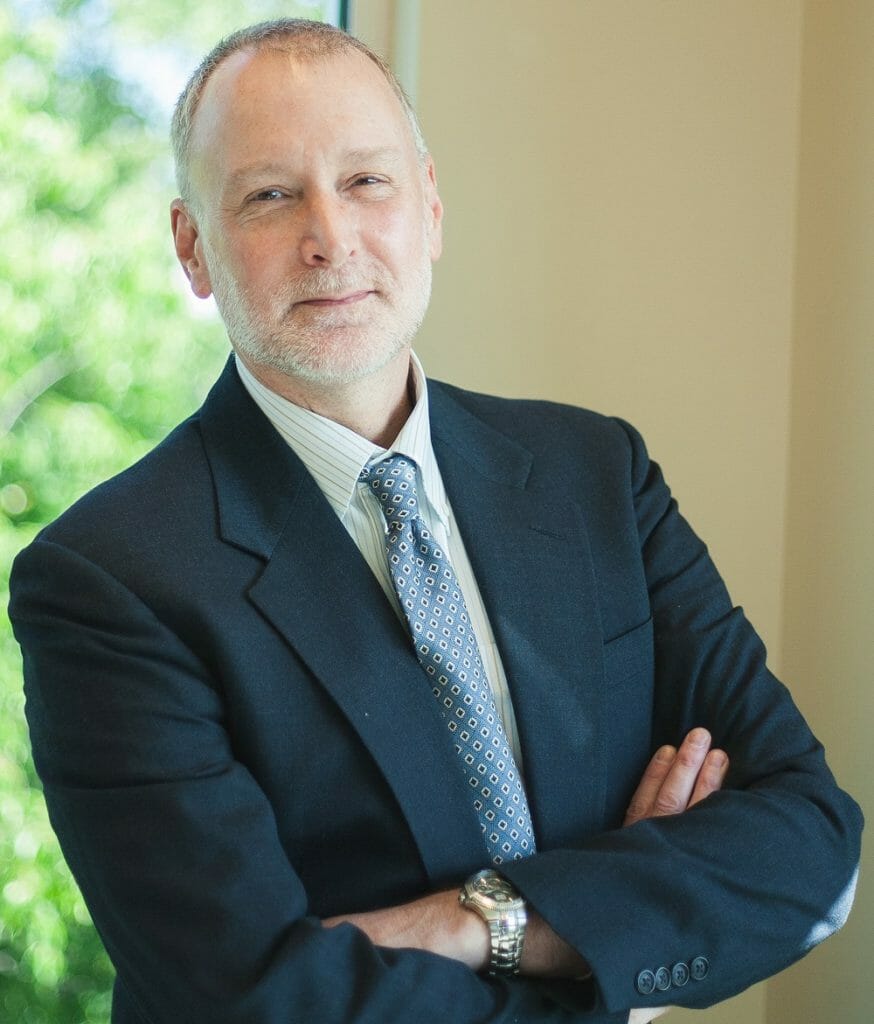
What was it about a career in healthcare and pharma that appealed to you? Making a difference, having impact, and following my passion for people and science. I more recently realized science can and should be creative. A really great scientific experiment is described as beautiful.
What were your greatest professional challenges along the way and how did you get past them? Developing emotional intelligence. As a practicing physician, I didn’t need to influence anything beyond writing orders in the chart. I failed miserably when I started in industry, but thankfully, I had mentor and executive support to work it out. I offered apologies freely and many people gave me the benefit of good intentions.
What do people not “get” about working in pharma and healthcare? What are some of the misperceptions? Early in my career, industry was called the “dark side.” I hated that. There are many people who are in the industry to help people.
What’s one thing about pharma and healthcare you’d change if given the chance? Sometimes we have disconnects and competing priorities in the system that don’t necessarily always serve patients.
What were the most important, funny, or weird things you have learned over the course of your career? The joy of people and their individuality and uniqueness. Being a clinician was a privilege. Being a leader of really smart people was equally fun because I know my tribe and my tribe knows me.
Who were your inspirations and mentors, both professionally and personally? How did they inspire you? In science, we stand on the shoulders of the shoulders of pioneers driven by scientific passion and discovery. The most brilliant people I have met are often the most humble and generous. My Ph.D. mentor, Dr. Richard Linck, is probably the most influential both professionally and personally. He exuded scientific passion, integrity, compassion, and humor.
What is your biggest professional strength and how did you develop it? I have an uncanny ability to see the big picture, but the capacity to go really deep. I have always had it, but when I was younger I got overly distracted by trying to prove myself. Now I trust my intuition, which has made me happy and efficient.
Looking back, are there any career moves or decisions you’ve made for which you’d like a mulligan, so to speak? Surprisingly, probably not. That’s a benefit of age.
What advice would you give to others looking to get into the industry or move up the ranks? Stand still and trust yourself. Don’t let the craziness around you distract you from your inner goal. With change comes opportunity. Follow your inner signals. Be honest. Be open to teamwork and how much fun that can be. Trust yourself.
What would you do if you didn’t do what you do for a living? I would probably be back in clinical practice.
What is something your professional peers don’t know about you? I am pretty transparent and open, for better or worse.
What’s something unique you keep on or around your workspace? Gifts from my former PepsiCo team when I left. We were a family.
What is your favorite city to visit for work, and why? Probably Hong Kong when it was still independent. Beijing, too, before the pollution.
Michelle Carnahan
North America head of diabetes and cardiovascular
Sanofi
Time in the industry: 26 years
What was your original career goal, whether as a kid or right out of school? It wasn’t really a career goal, but more an experience goal. I wanted to do something where I could continually learn, make a difference in people’s lives, and have fun.
What was your most important or favorite job before your current one? I am the type of person who always loves the job she is in the most. I believe the next job will never be as good as the job I am in and then I find one, fall in love, and the cycle starts again.
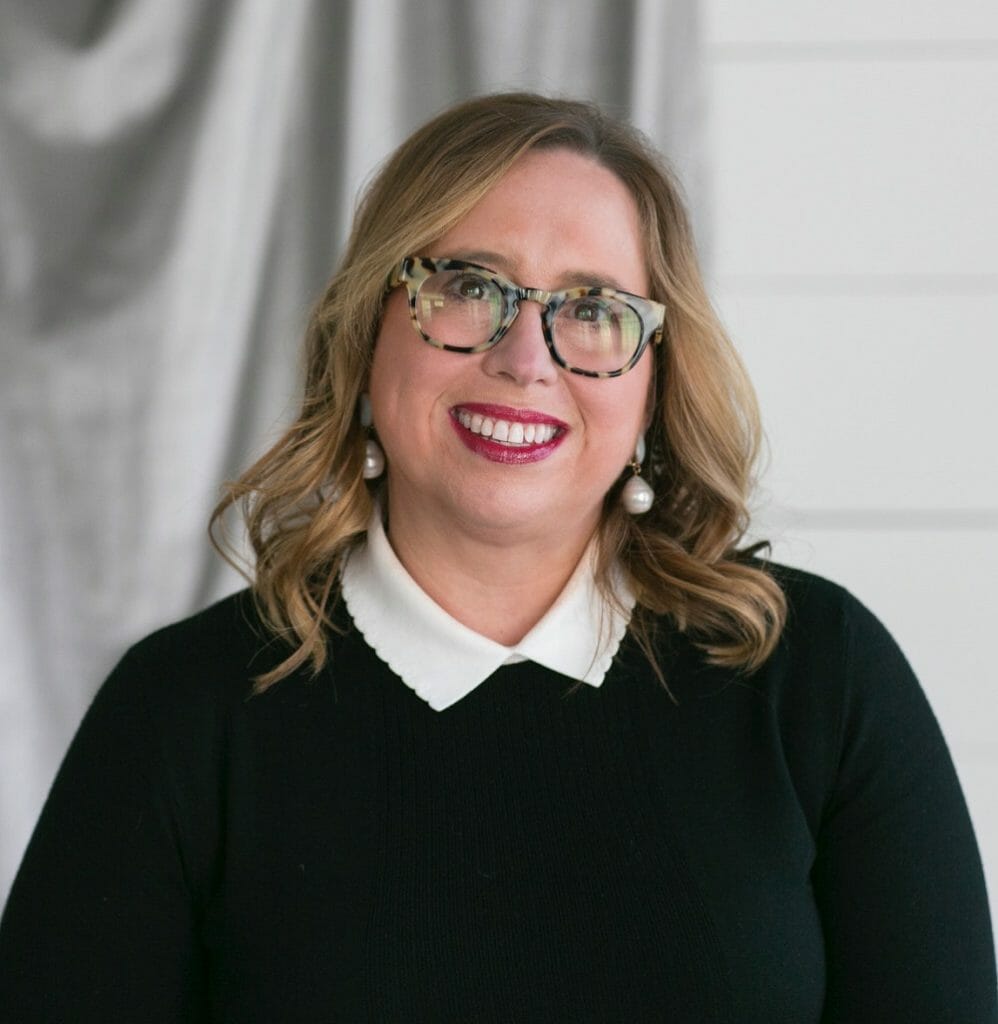
What was it about a career in healthcare and pharma that appealed to you? I worked for an individual and he used to say, “We don’t sell chocolate bars.” What most appealed to me, and still appeals to me every day, is that we have the opportunity to make a difference in people’s lives. I do not take that for granted.
What was your “eureka” moment, when you realized you were in the right place professionally? I will always remember sitting in a conference room discussing the results of an important clinical trial which showed a significant mortality benefit. It was at that moment I knew all the extra hours and distracted vacations were worth it. If we can give another special moment to a mom, dad, grandmother, or grandfather – how humbling is that?
What do people not “get” about working in pharma and healthcare? What are some of the misperceptions? I don’t think people truly understand the depth of commitment of people in this industry. So many work in healthcare because they have a calling. They know someone with a specific disease and want to make a difference in that disease.
What’s one thing about pharma and healthcare you’d change if given the chance? I would change access for patients. Too many people still do not have the access they need to our medicines. And without access, our medicines are just unfulfilled potential, hope in a bottle, or in a device, and that helps no one.
Who were your inspirations and mentors, both professionally and personally? How did they inspire you? One of the most inspirational people I’ve met is the little brother of a friend of my 15-year-old son. He is an 8-year-old who had cancer at a very young age and, post-treatment, his parents were told he would not walk. Today, he does so with a lot of effort. He loves sports and clearly there are limits for him, but he does not let those limits stop him. He is always positive and has a smile. I love that kid, and he makes me want to be better.
Professionally, I spent 25 years at a company where I was mentored and inspired by so many women. Their experience and positions in the workforce changed a lot over those years, and I am glad to see they are taking their seat at the table – and, in taking that seat, encouraging other women to do the same.
What is your biggest professional strength and how did you develop it? My biggest strength is my ability to be myself. I am very comfortable with my belief system and who I am. I also have to give a lot of credit to my female support network at work. Sometimes, who I was looked different than the leader, and some leaders do not fully appreciate difference. Over the years, it was often just that one woman who stopped me in the hall and said, “I am glad you stood up for this” or “I am glad you said something.” That gave me the confidence to be me, regardless of the culture or a supervisor who wanted me to be someone else. A quick “you got this” to a co-worker makes all the difference.
What was your biggest professional weakness and how did you address it? My biggest professional weakness is patience. I am action-oriented and can be demanding, which can come across as a bit abrupt. Action orientation can be a strength, but sometimes the move to action gets in the way of listening.
What advice would you give to others looking to get into the industry or move up the ranks? Do not forget the importance of what we do. I encourage anyone who wants to succeed in the industry to keep patients as your true north. Ask yourself, before everything you do, “Would this matter to a patient?” Solutions to challenges will become clearer.
What would you do if you didn’t do what you do for a living? I would love to be an architect and designer. It’s a career that allows you to use both your left and right brain. Plus, it would be fun to spend someone else’s money to create.
What is something your professional peers don’t know about you? I am pretty transparent, so nothing immediately comes to mind. If it did, I wouldn’t share it here.
What’s something unique you keep on or around your workspace? I have always kept handwritten quotes around my desk. Some are from famous people and some are just things I hear in a meeting that I think are funny or insightful. I post them randomly. They are great conversation starters and you learn some really interesting things about your co-workers with the comments.
What is your favorite city to visit for work, and why? Paris. I could say because the Sanofi global HQ is located there and it is great to meet and interact with the broader Sanofi team, which it is. But really, it is Paris. Does there need to be a why?
John Duffey
VP, U.S. specialty biopharmaceuticals
AbbVie
Time in the industry: More than 26 years, beginning as a sales representative with the joint venture Takeda Abbott Pharmaceuticals.
What was your original career goal, whether as a kid or right out of school? I started college as a biochemistry major. After the first year, I realized I wasn’t going to be a doctor and didn’t want a career in medicine or clinical research, so I changed my major to what I deemed the perfect fit for me: marketing management. As idealistic college kids go, my goal was to run a company fresh out of college.
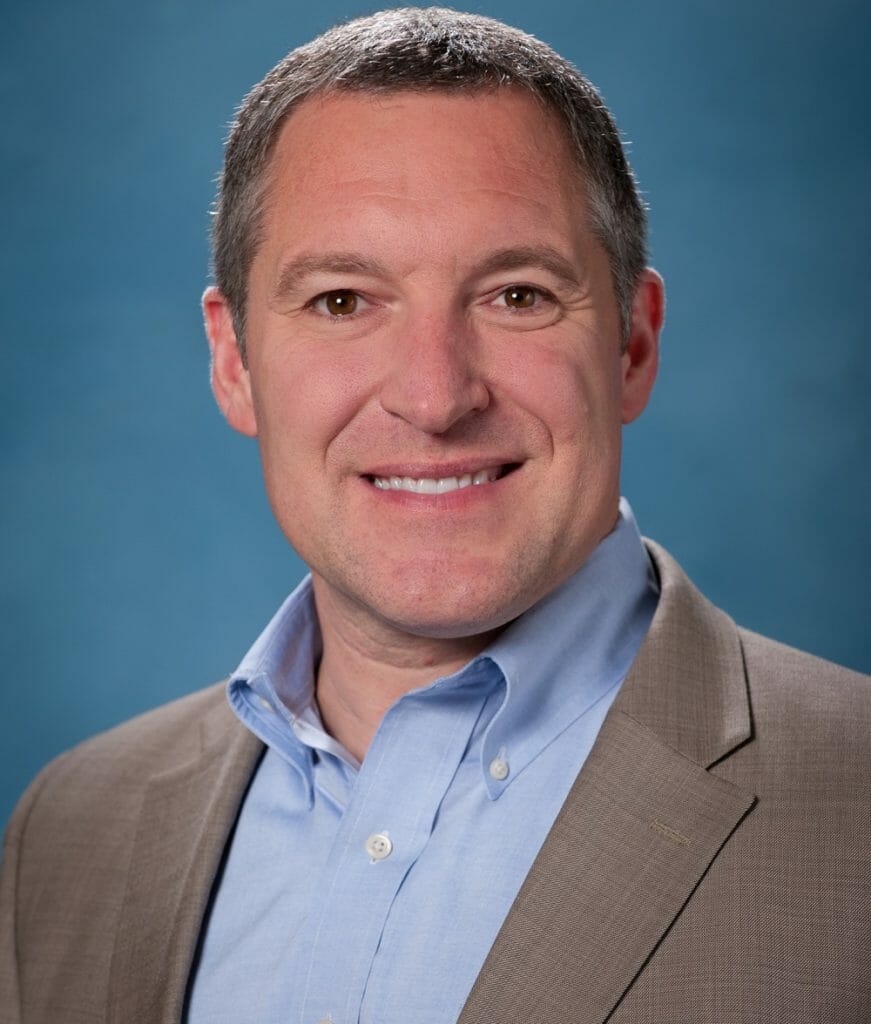
What was your most important or favorite job before your current one? Launching products stands out. Working through the opportunities and challenges of introducing new medicine that fulfills an unmet need for patients is exciting and rewarding.
What was it about a career in healthcare and pharma that appealed to you? What the industry stands for – importance of medicines to society, educational partnerships with providers, and ultimately improved patient care – has given me an element of pride and excitement throughout the course of my career. The work we do is important and something we should be proud of.
What was your “eureka” moment, when you realized you were in the right place professionally? When I reached my first product manager role in marketing at the corporate office. The efforts I made in that role were more far-reaching than my influence within a single sales territory.
What were your greatest professional challenges along the way and how did you get past them? When you sunset a mature product, a leader needs to find the balance of doing right by all key stakeholders—patients, providers, employees, and shareholders. In a difficult position of making decisions that affect people’s lives, you will need to stay true to your values as a person and leader. The principles I carry with me include creating a positive and safe environment, fostering a culture of transparency, and treating my team not only with respect and dignity, but also as the valued employees they are. This is critical during times of crisis and significant change. Never waver on doing right by people.
What do you want people to know about working in healthcare? Commitment to patient care is foundational to everything we do. The cascade of influence we create for our patients and their families is why we do what we do every day. I hope the communities we serve feel a sense that they are not alone. Also know the majority of us in biopharma are committed to providing support beyond our medicines, whether it’s through monetary support and grants or the thousands of volunteer hours our employees give each year.
Who were your inspirations and mentors, both professionally and personally? How did they inspire you? My core work ethic and principles come from my parents. They worked hard and didn’t have much given to them. Both taught me by their actions that success should not come at the expense of others.
What is your biggest professional strength and how did you develop it? My strength is my ability to consistently transform organizations to overdeliver as a high-performing team, especially during challenging times. I’ve learned how to connect and engage people around a common cause, elevate and empower team members to own their business, and create an inclusive, safe environment so as to unlock the team’s talents in pursuit of our objectives.
Looking back, are there any career moves or decisions you’ve made for which you’d like a mulligan, so to speak? I really don’t. Every decision or move made was based on my abilities, knowledge, and information available at that time. Yes, I’ve had professional success during my career – but more importantly, I’ve also had numerous failures. In hindsight, those are the times I’ve developed most as a leader.
What advice would you give to others looking to get into the industry or move up the ranks? Focus on your journey and experience, rather than on hierarchical promotions. If you accelerate too quickly, you could miss valuable development. If you define your short-term career success by what you learn and the experiences you gain, you’ll be the best leader possible when your time comes.
Carlton Lawson
Head of global categories, consumer healthcare
GlaxoSmithKline
Time in the industry: 25-plus years
What was your original career goal, whether as a kid or right out of school? After receiving my degree, I considered staying at university and studying medicine, but the additional five years of study just weren’t practical – and my wife, a doctor, says I probably wouldn’t have made a great doctor.
I pursued opportunities in the pharmaceutical sector instead and was fortunate to secure a role in consumer healthcare, initially in sales and then marketing.
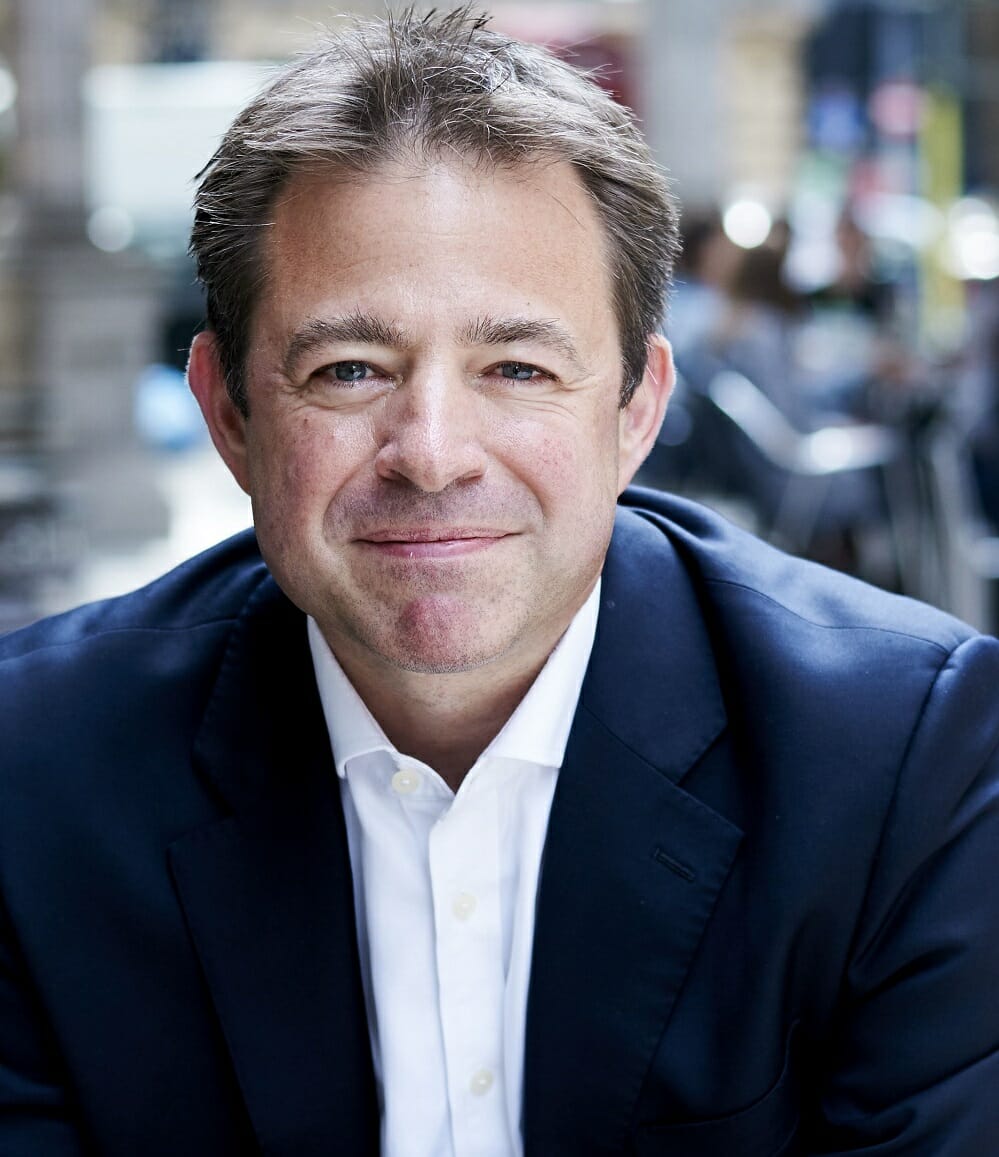
What was your most important or favorite job before your current one? I absolutely loved my first brand manager job. A brand manager is the GM of a brand, so I enjoyed the breadth of the role and being responsible for delivering everything from innovation to creative. I get a buzz from seeing shoppers selecting products we’ve brought to market and knowing the products will help them improve and manage their health.
What was it about a career in healthcare and pharma that appealed to you? I am incredibly motivated by the difference we can make to people’s lives. In GSK Consumer Healthcare, we reach around 1 billion people a year with our brands. That’s 1 billion people we help in some way, whether by relieving joint pain or headaches, managing allergies, helping them quit smoking, or keeping their teeth and gums healthy.
What was your “eureka” moment, when you realized you were in the right place professionally? I remember my sister-in-law enthusiastically recommending a treatment for hay fever to me without realizing it was a brand I had launched. To have someone tell you all the reasons you should use your brand is a special moment.
What were your greatest professional challenges along the way and how did you get past them? I believe when there is significant challenge or crisis, it acts as a catalyst for organizational acceleration that is incredibly liberating. It’s at these times organizations and teams find the courage and ambition to take immediate action. The inertia that can exist in large organizations is removed.
What do people not “get” about working in pharma and healthcare? What are some of the misperceptions? Healthcare is a regulated industry and some people assume this stifles creativity, it is quite the opposite. We’re lucky enough to work in an area that consumers really care about, which gives us an extraordinary opportunity to be creative and connect with consumers in a meaningful way.
What were the most important, funny, or weird things you have learned over the course of your career? I had an invaluable coaching experience very early on in my career for which I will always be grateful. I had recently become a regional sales manager and was holding my first sales team meeting, at which I took the team to task for underperformance. The meeting concluded for the day and, after dinner, it was evident I’d lost the team – because the bar was deserted at 9 p.m. I was able to call on a trusted team member who had the courage to point out I hadn’t given people the chance to comment, provide any context on the situation, or focus as a team on what we needed to do to get better. I opened the following morning with an apology and we relooked at the performance collectively. I’ve kept this experience with me and it helped make me the leader I am today.
What is your biggest professional strength and how did you develop it? I always aspire to build strong teams. It is important to be confident enough to hire people who are better than you and continue to develop them. I hold myself and my team accountable for delivery and stand by the line that it will only happen if we make it happen.
Looking back, are there any career moves or decisions you’ve made for which you’d like a mulligan, so to speak? No. I have loved every role I have been in.What advice would you give to others looking to get into the industry or move up the ranks? I learned early on to never accept a role for a title or promotion. Take a role for the challenge, learning, and development. Have courage to step into the unknown.
From the October 01, 2018 Issue of MM+M - Medical Marketing and Media

